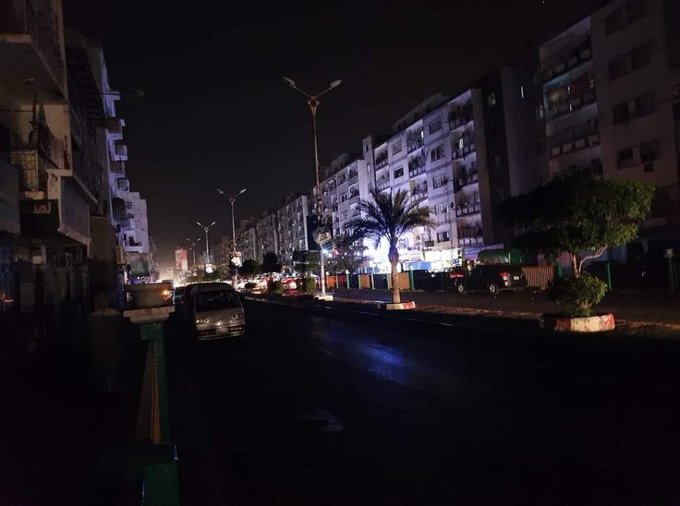Shibh Aljazeera Net | Aden
Residents of Aden are complaining about increased hours of power outages, with the electricity crisis worsening as blackouts now range from 18 to 20 hours daily, leaving only four hours of power amid high temperatures and rising energy demand.
This situation exacerbates the suffering of residents and disrupts livelihoods, despite promises from the Aden government to resolve the crisis over the years. According to Al-Omanaa newspaper, in a report titled “Neither Tears Nor Complaints Help,” all parties, including the Presidential Council and the government, are ignoring their responsibilities toward the current crisis in Aden and nearby governorates like Lahj, Abyan, and Al-Dhalea. The newspaper warns that the “tragic situation” may persist for weeks if authorities continue to disregard their essential duties.
Last year, the Aden government stated that electricity spending in Aden accounted for 60% of its overall expenditure on the energy sector, with more than $55 million spent monthly on electricity generation in Aden, averaging $1.8 million daily.
This statement came after Aden Governor Ahmed Lamlas accused the government of shirking its responsibilities and using the electricity issue as a tool to “punish” the people of Aden.
Aging Infrastructure and Government Corruption
Economic analysts in Aden emphasize that the electricity crisis is escalating due to the deteriorating infrastructure of the electricity network, which relies primarily on outdated plants from the 1970s that now operate at less than half their capacity.
These plants suffer frequent breakdowns due to a lack of regular maintenance, in addition to fuel shortages and insufficient fuel supplies needed to ensure uninterrupted operation. Aden’s Electricity Authority has repeatedly called for a resolution to the ongoing shortages of light crude oil.
While the Aden government insists it has plans for the energy sector, residents say these government promises fade after being announced, with little tangible impact on their lives.
The Aden government has failed to supply crude oil to the PetroMasila power plant in Aden from the Al-Dhaba reserves, which hold 3 million barrels, nor has it addressed issues in diesel provision from refinery storage tanks.
Residents question the fate of electricity revenues and how they’re allocated by the Electricity Authority. Reports reviewed by Boqash indicate that a portion of the revenue is spent on operational expenses and salaries for unqualified or even non-existent employees.
According to Aden Al-Ghad newspaper, revenue is not invested in improving service or purchasing fuel as it should be. Instead, there is significant corruption in maintenance contracts and fuel procurement at inflated prices, with these contracts going unchecked, as reported by an anonymous official.
The crisis deepens with allegations of government corruption. The newspaper cited officials claiming that funds are squandered on unproductive or even fictitious contracts, while fuel supply contracts for power plants are approved at rates higher than market prices, benefiting certain parties.
The official also noted that some employees receive salaries without having any actual role, and some contracts are awarded to unqualified companies, wasting public funds and leading to project failures. Corruption, he added, is a key reason for the ongoing crisis, as personal interests are prioritized over the well-being of citizens.
The power outage crisis has impacted business activities in Aden and other Aden government regions. Shops, malls, restaurants, and even hospitals are forced to close or use costly generators, which in turn drives up the prices of goods and services.
The government and local authorities have not issued any official comments regarding the protests on social media over the worsening electricity crisis and the increase in outages to nearly 20 hours a day.
